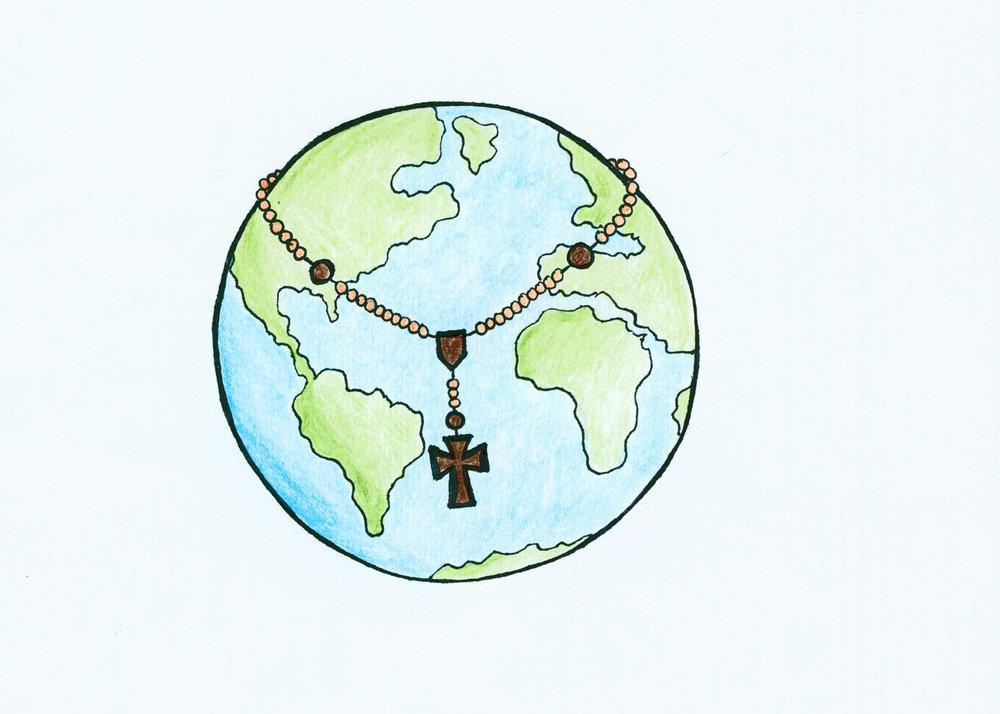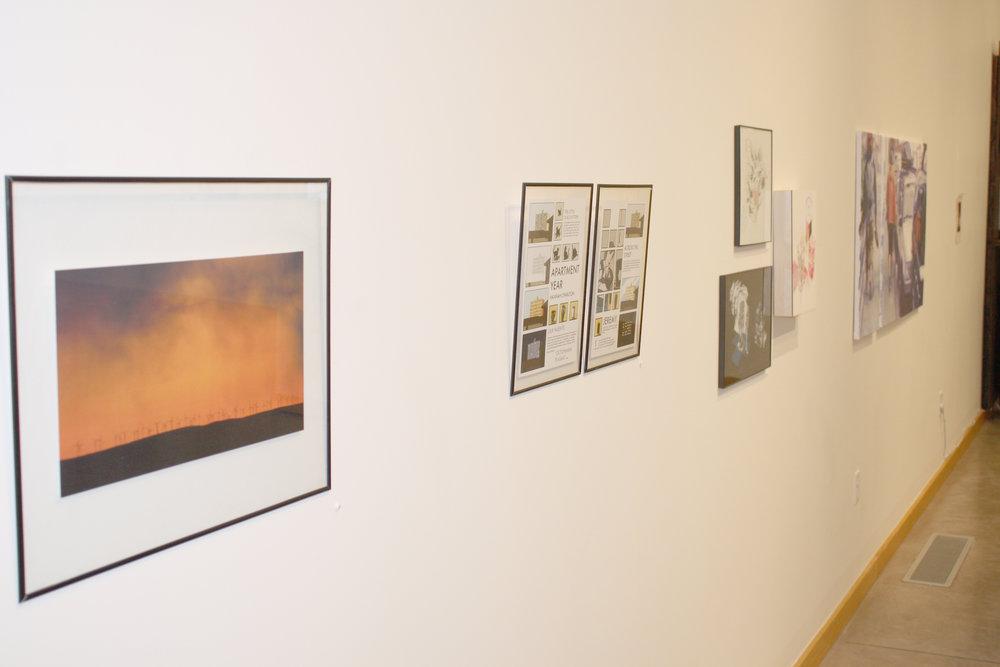“The Christian faith was never meant to be held onto as a private privilege,” Father Robert Barron said. “It’s meant to be shared.”
The Catholic Fellowship Club will hold a showing of “Amazed and Afraid” in the HUB Multipurpose Room Feb. 20. This is the first segment of a 10-part documentary titled “Catholicism,” which will be shown throughout the semester.
“We’ll be looking at who is Jesus? Who is this person that changed the world, basically?” senior Ethan Alano said about the first segment, “Amazed and Afraid.” “Scenes throughout will include the Holy Land and kind of exploring just how different Jesus was from everything else before.”
Each episode runs for 50 minutes. At the end of each of showing, attendees will have the chance to ask questions pertaining to the segment and to Catholicism as a whole.
“It’s hosted by Father Robert Barron who is the leader of a Roman Catholic seminary in Illinois called Mundelein,” said Anthony Clark Catholic associate professor of Chinese history. “He is probably one of the most famous Catholic intellectuals in North America today.”
Father Barron has a wide body of work combining culture commentary and theology, for instance connecting films and movies to theological themes. Some of the segments aired on PBS when “Catholicism” first premiered as well as on EWTN, a Catholic television station, Alano said.
“‘The Catholic story is being told, but it’s not necessarily being told by the right people,’” Alano said, quoting one of the series’ trailers. “I’m not saying this is Whitworth, but in the wider culture it might just be getting a new angle on what is the whole thing going on here. Just to show a really substantial and frankly beautiful presentation and just to get people more interested in continuous dialogue.”
Alano, cultural diversity advocate in Duvall Hall, and sophomore Tiffany Martinez, president of the Catholic Fellowship Club, procured the rights to show the documentary on special permission from Catholic evangelization organization, Word on Fire. The organization owns the series, Martinez said. Showings of the “Catholicism” series will reflect Whitworth’s goal of striving for diversity in the area of various religious beliefs represented on campus as it highlights the historical, cultural and doctrinal richness of Catholicism.
“I think Catholicism, as a Catholic, is relevant to any Protestant Christian community, because we Catholics would say, ‘You come from us,’” Clark said. “We would definitely say that when we watch you worship, we see ourselves in how you pray and how you approach God.”
Close ties between Catholicism and other Protestant denominations may not be readily obvious, but Clark engcourages attendance at the showings to promote open-mindedness in the pursuit of understanding.
“The people who least want to go [to this event], should go,” Clark said. “Those who feel most threatened by watching a series on the Roman Catholic Church should probably go watch it.”
Martinez has noticed a certain degree of antipathy toward Catholicism under the surface of Whitworth’s community.
“My personal experience at Whitworth is when I let people know on campus that I’m Catholic, I feel like they’re very open,” Martinez said. “They’re very kind about it, but subconsciously they just kind of shove you to the side like, ‘Oh, you’re Catholic.’”
Some people Martinez has encountered are more outspoken than others when it comes to their opposition of the Catholic faith.
“There have been some people that have been really more aggressive about it, but that’s been few,” Martinez said. “I’m not going to let that one little comment ruin my day or my year at Whitworth. There are more positive things in life to celebrate than just that one comment one person said on the side.”
Martinez decides to take others’ views with a grain of salt and stay positive, she said. Martinez also acknowledges the reality that some people may be misinformed and hopes that the series will open people’s eyes to a more accurate view of Catholicism.
“A lot of people know the lies about Catholicism,” Martinez said. “There are very very very few people who hate the Catholic Church. People who hate the Catholic Church, hate the lies of the church, things that we don’t actually believe in that are big myths. Actually this series will help clarify those lies.”
The “Catholicism” series has the potential to reach across faith boundaries and not only give a message of evangelization but also, to provide cultural studies and historical narratives of early Christianity, Clark said.
“There are also a lot of Christians here who are not part of the Catholic Church who I think would benefit from seeing the origin of the form of their own spiritual practice and approach to Christ,” Clark said. “This series doesn’t hold any punches. It’s theological. It’s historical. It’s cultural. Father Barron sets out to set the record straight so to speak, but to also inform people about the richness of Catholic history.”
Contact Aly Brooks at abrooks17@my.whitworth.edu











 Spokane?
Spokane?